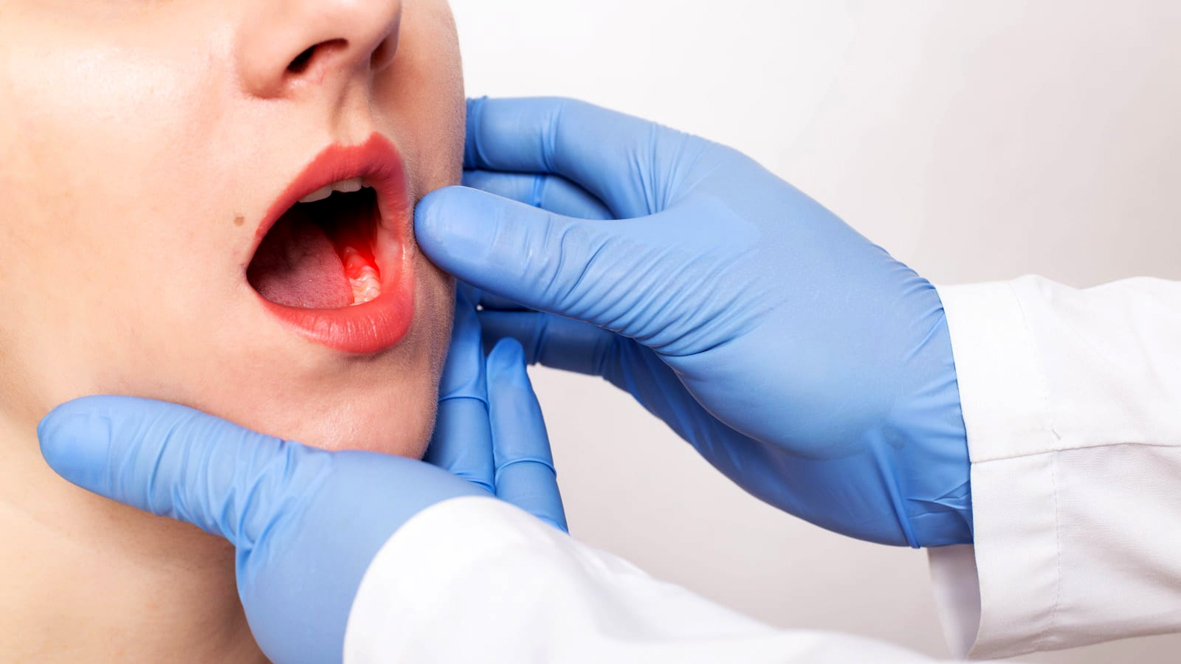Dr Mandeep Kaur
COVID-19 pandemic is a global health threat today. We are in the grip of a second wave due to the failure in the proper implementation of factors such as social distancing, use of mask, sanitizer and strict quarantine measures for infected patients. Second wave of COVID-19 is characterized by SARS-CoV-2-mutated strains with Gly614 amino acid replacement in spike protein.The E484K mutation has been identified in South African (B.1.351) Brazilian (B.1.1.28) and UK (B.1.1.7) variantsand is called as escape mutation as it helps the virus slip past the body’s Immune defenses.
Due to the high prevalence of oral cancer worldwide, more supportive care to the patients during this pandemic is needed to improve quality of life and survival. The Multinational Association of Supportive Care in Cancer defines supportive care as the prevention and management of adverse effects of cancer and its treatment. Enhancing rehabilitation, secondary cancer prevention, survivorship and end-of-life care are integral to supportive care.
A multidisciplinary team (MDT) approach is necessary to ensure holistic care for oral cancer patients. This approach improves communication between different disciplines and decision-making to obtain best treatment plan. To achieve this, we should embrace Virtual Tumor Board with oral diagnosticians, oral surgeons, medical oncologists, radiation oncologists, psychologists, pathologists, cancer nutritionists and physical fitness experts as members. We can assist the patients through phone and video calls to reduce the interpersonal contact and identify high-risk cases. Teledentistry is a novel approach for educating, interviewing and examining patients through applications such as zoom, messengers and teams.
Biopsy should be performed only if the lesion is suspicious for malignancy as a high viral load exists in the oropharyngeal region of infected patients. Patients should be counselled for cessation of oral habits along with regular monitoring of any changes in the appearance of the lesions. All follow up appointments should be minimised to reduce patient surgeon contact.
The AO CMF International task force recommends non-surgical methods such as radiation for the management of patients with oral cancer, if similar results as a surgical approach can be achieved. Radiotherapy may also provide symptomatic relief and delay the need for the surgery for some time.
There are reports of many patients avoiding hospital visits due to fear of acquiring the infection, thus delaying the treatment protocol. Thus, the patients have to be educated about the adjuvant therapies and the negative impact on prognosis and disease-free survival in case of delaying the treatment.
Patients under chemotherapy may develop mucositis and difficulty in eating. Oral gels, mouthwashes and pain killers can be advised to provide relief to the patients. They are urged to follow a healthy, balanced diet during and after treatment with added proteins, vegetables, fruits and low-fat dairy products. Regular exercise is also important part to improve physical and mental health. Psychological distress among cancer patients is very common leading to reduced compliance with treatment. All this can be addressed through virtual calls by cancer nutritionists, fitness experts and psychologists.
The world is ramping up measures to become fully vaccinated and prevent COVID-19.
India launched its vaccination drive in January 2021, with two vaccines – Covishield and Covaxin. But the cancer patients are in a dilemma whether to take the vaccine or not. The chief reasons are the fear of side effects, lack of information on the effectiveness of the vaccine, fear of contracting the infection in hospital and lack of trust that the vaccines are safefor cancer patients. The patients should be encouraged to take the vaccine, as protection by the vaccine outweighs the side effects. Positive impressions of safety and efficacy of the vaccine improve the patient’s attitude.
Patients can benefit from the professionals in the MDT, who determine the treatment plan crucial for the outcome and render the best supportive care and improve quality of life of oral cancer patients in this pandemic.
(The author is Assistant Professor Deptt of Oral Pathology & Microbiology Indira Gandhi Govt Dental College Jammu)
Trending Now
E-Paper


